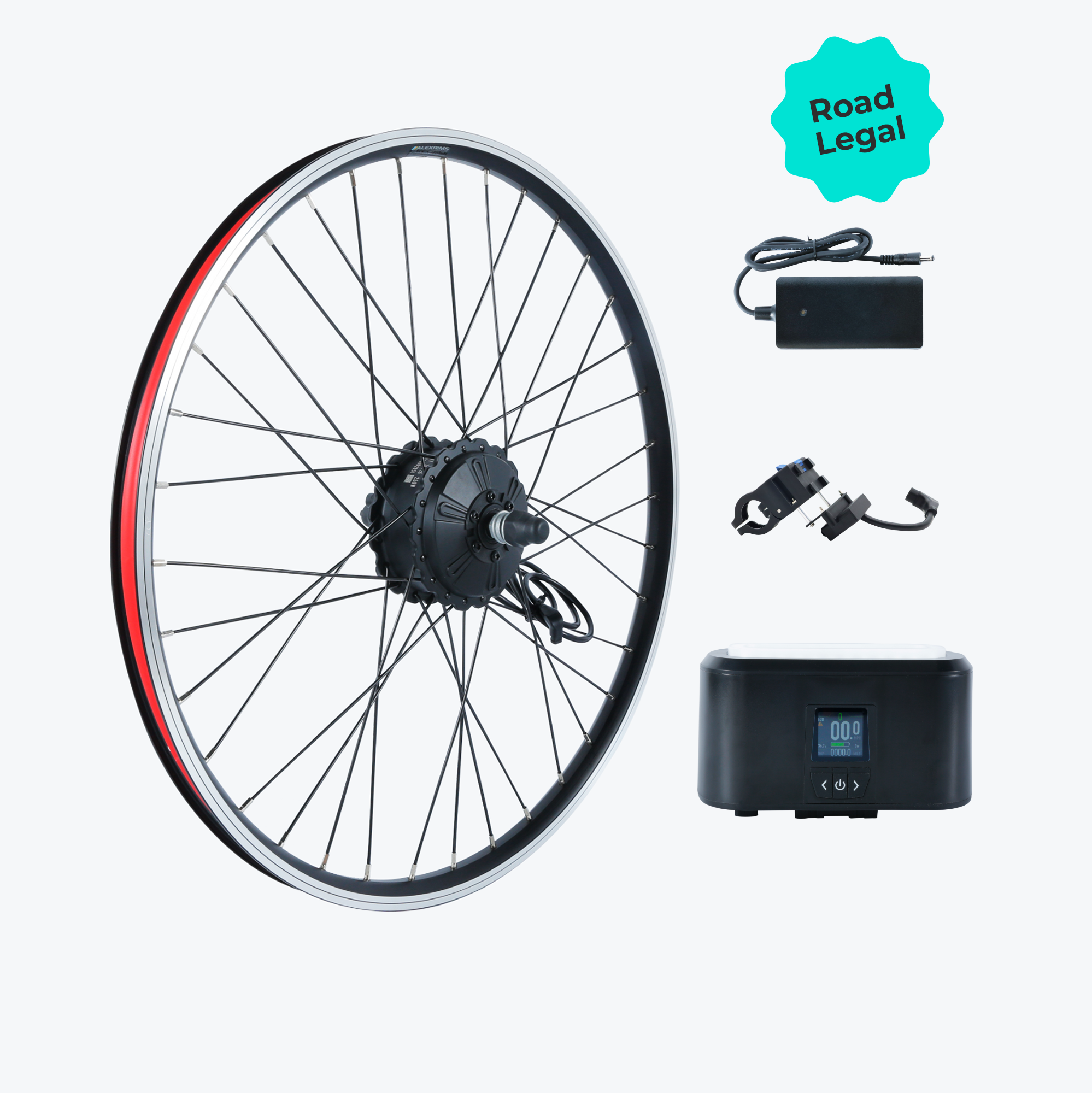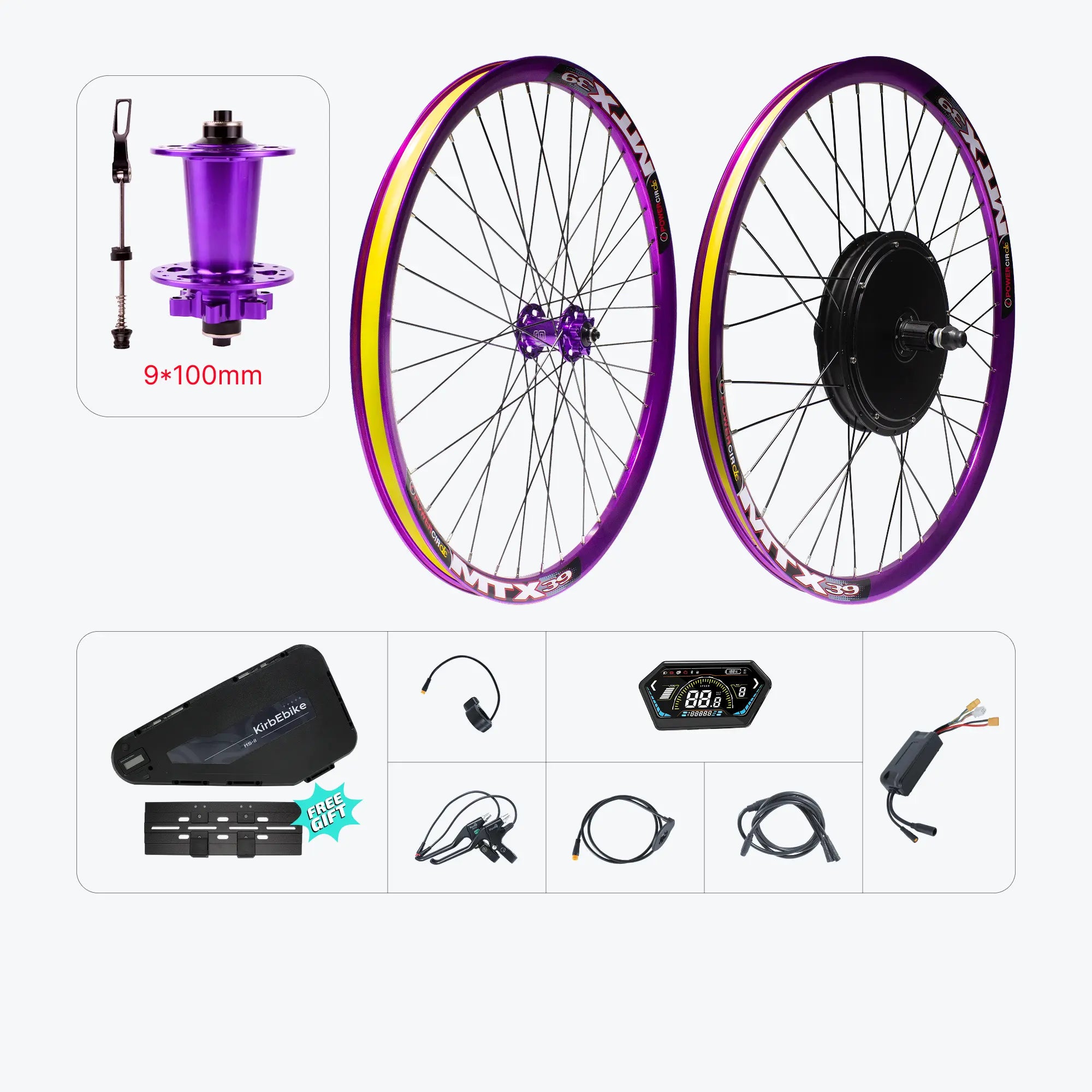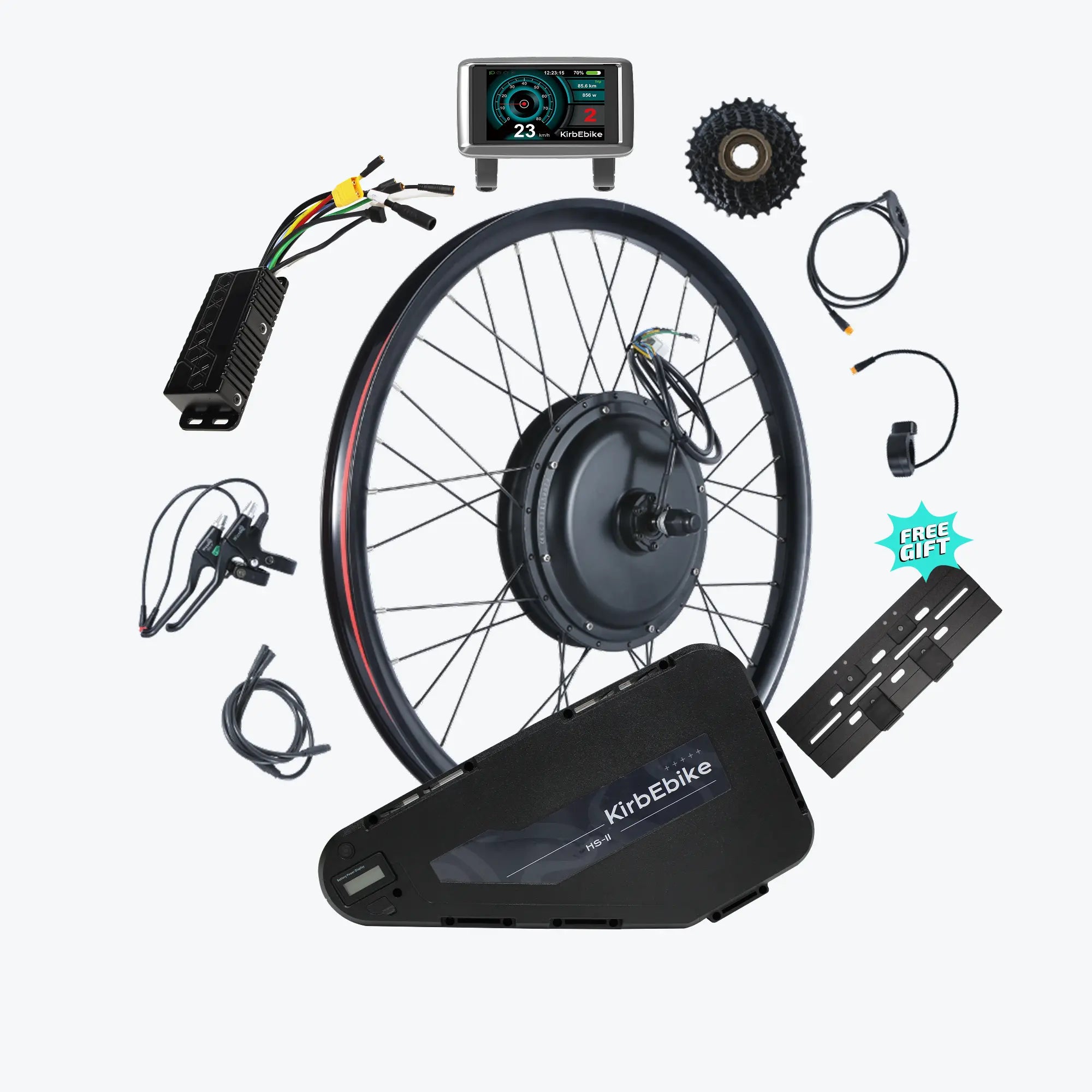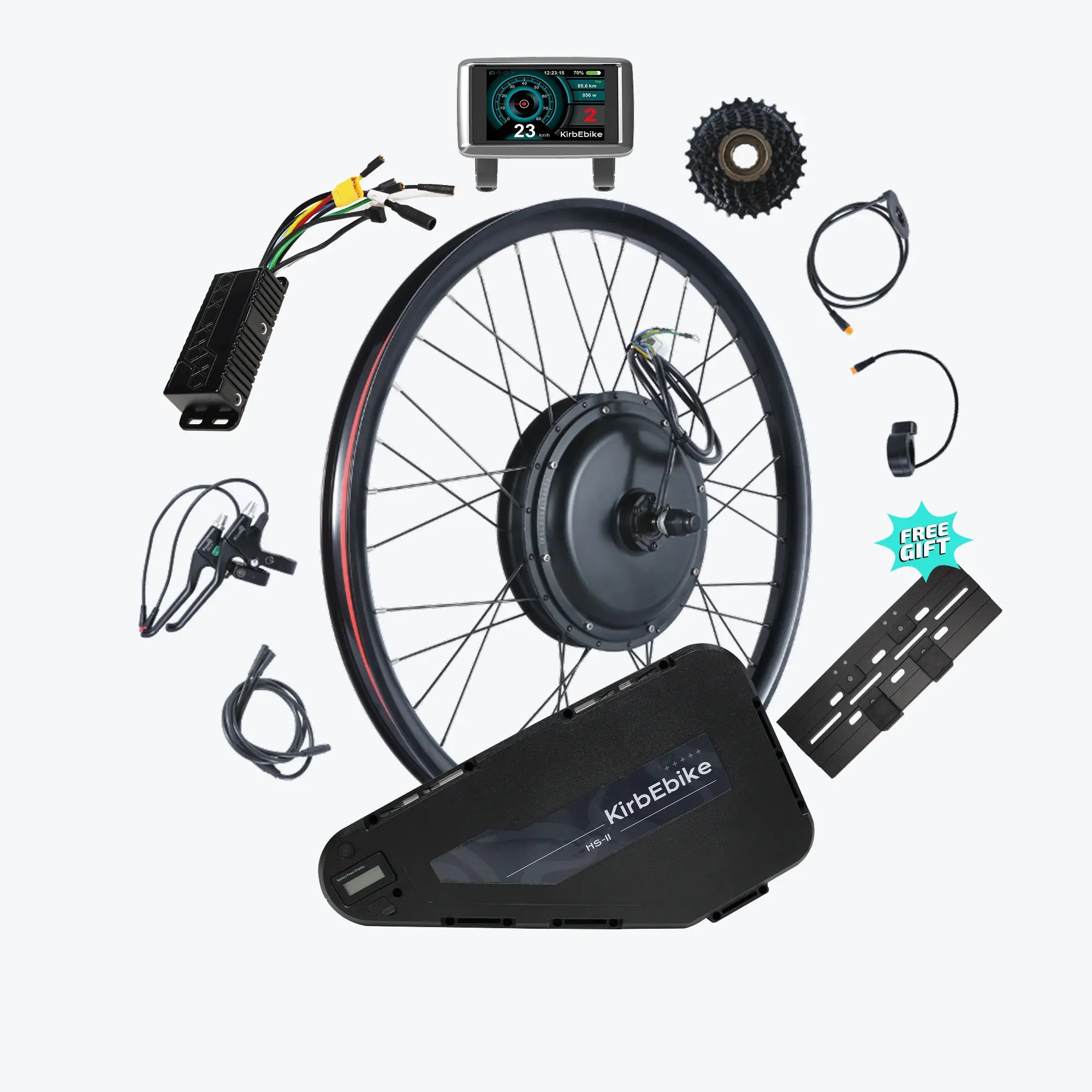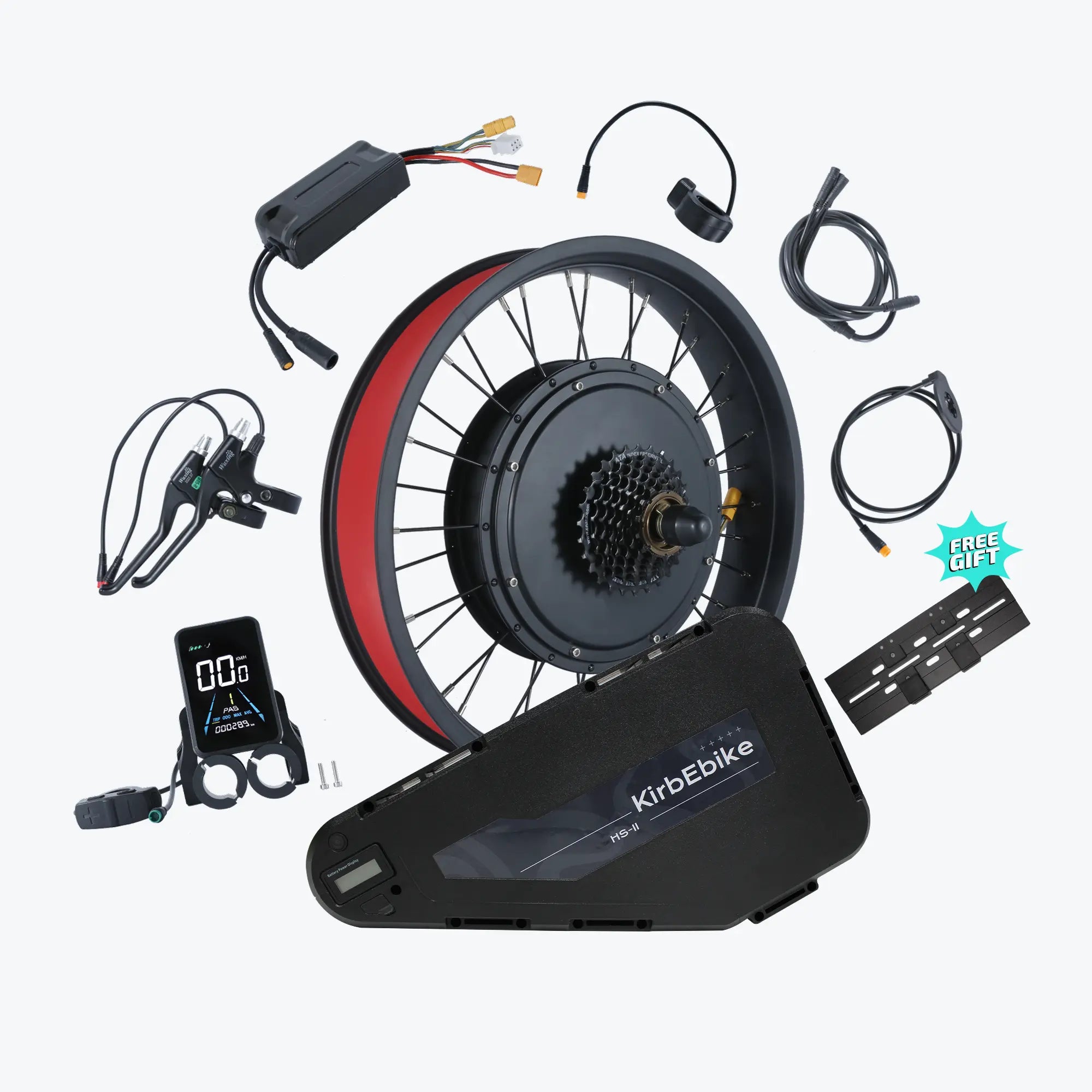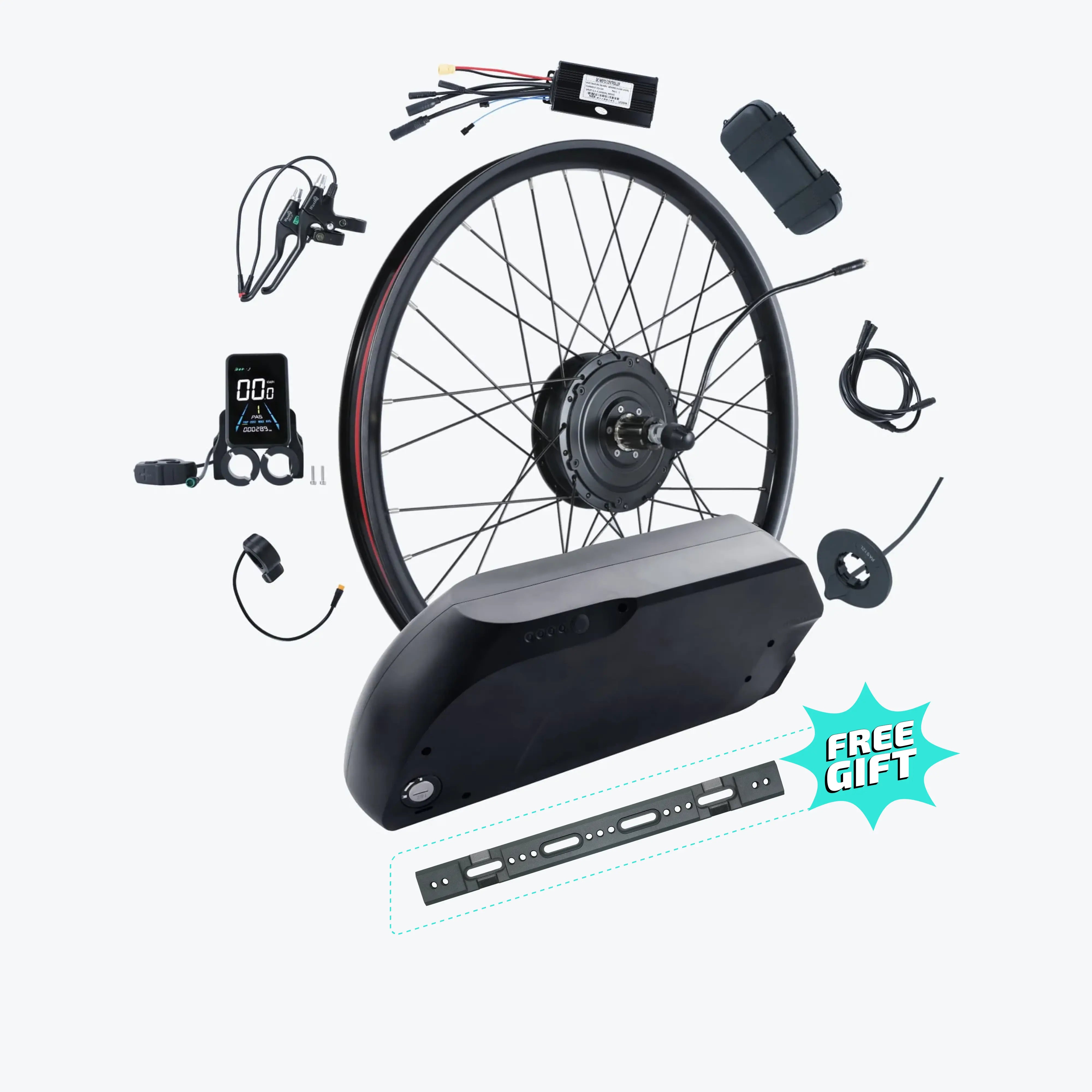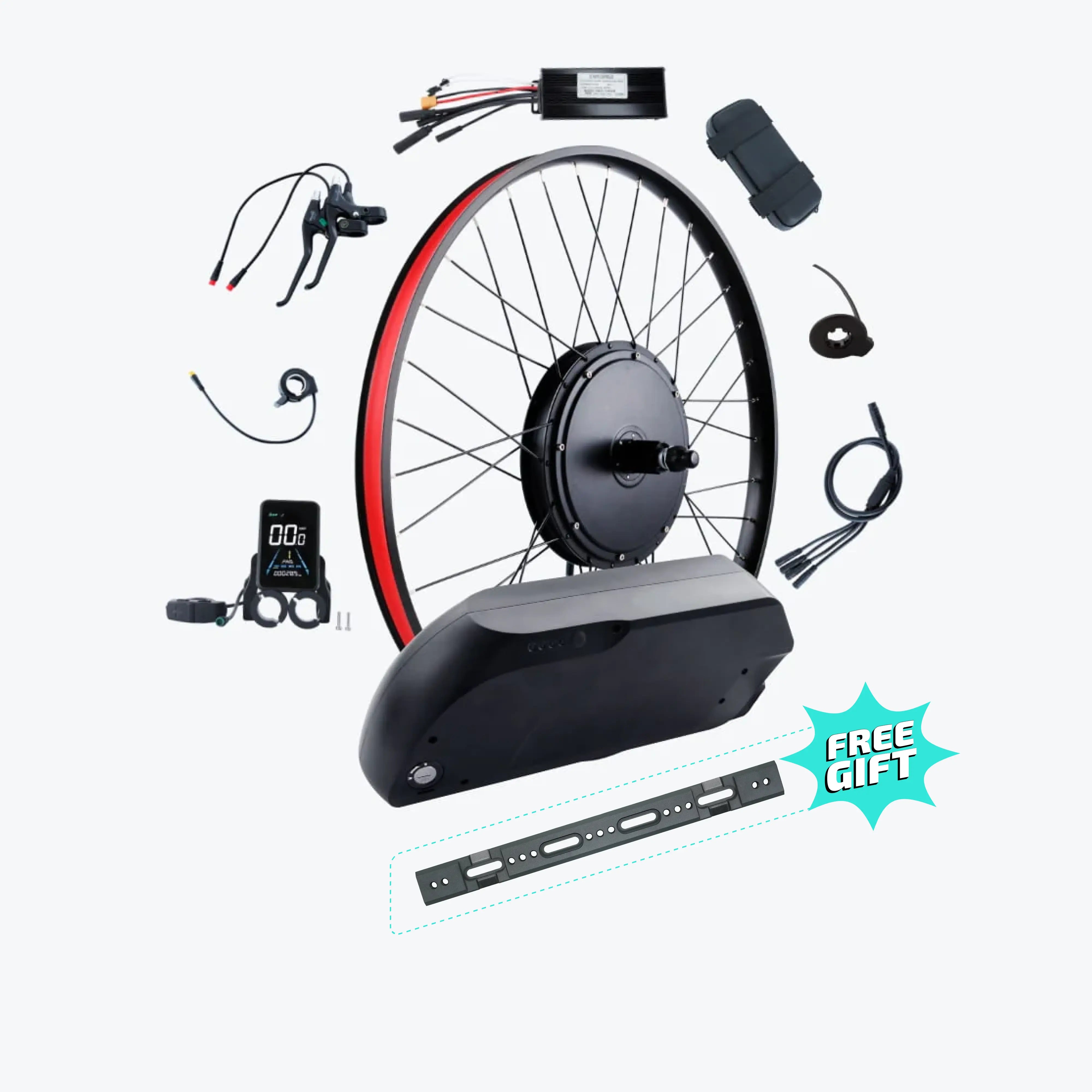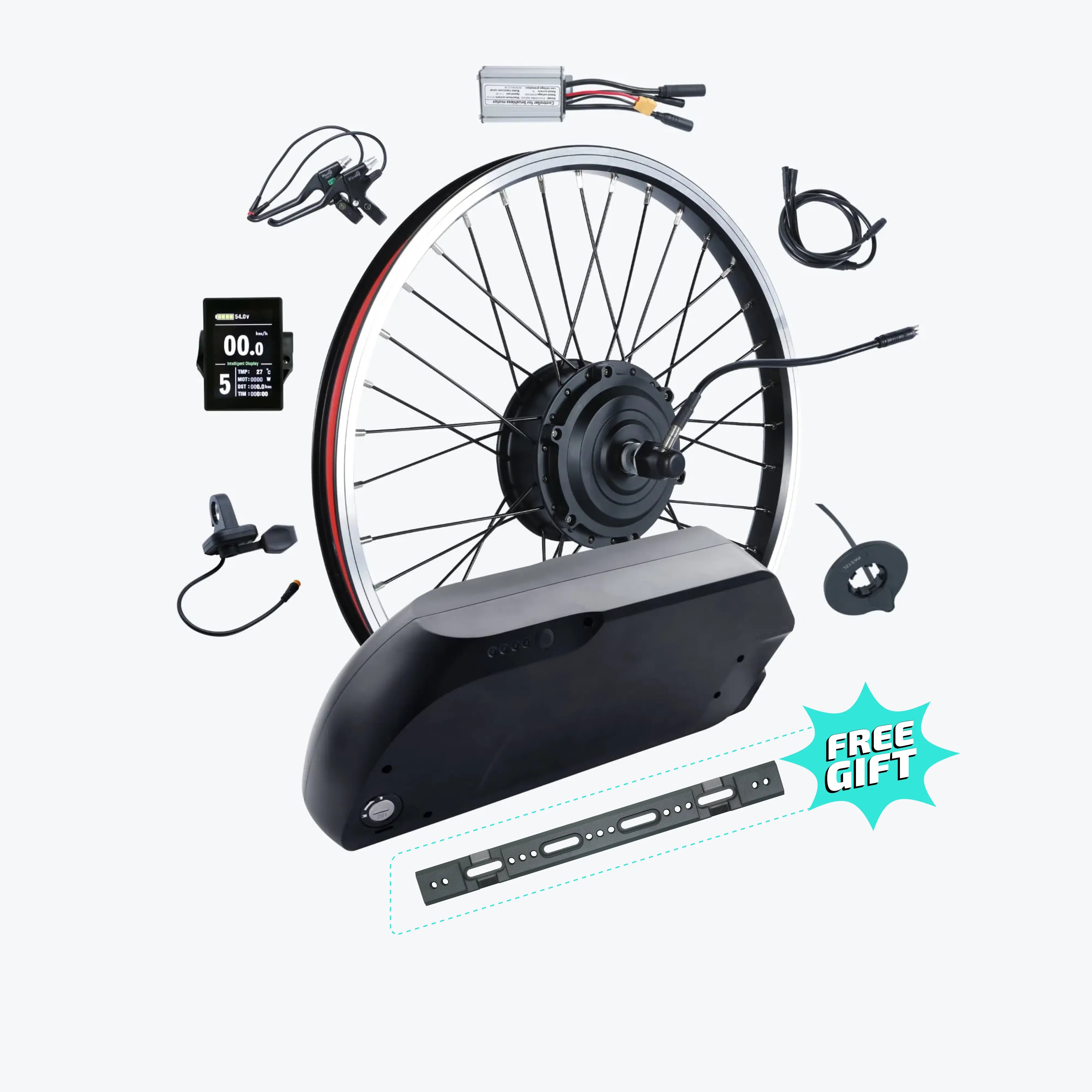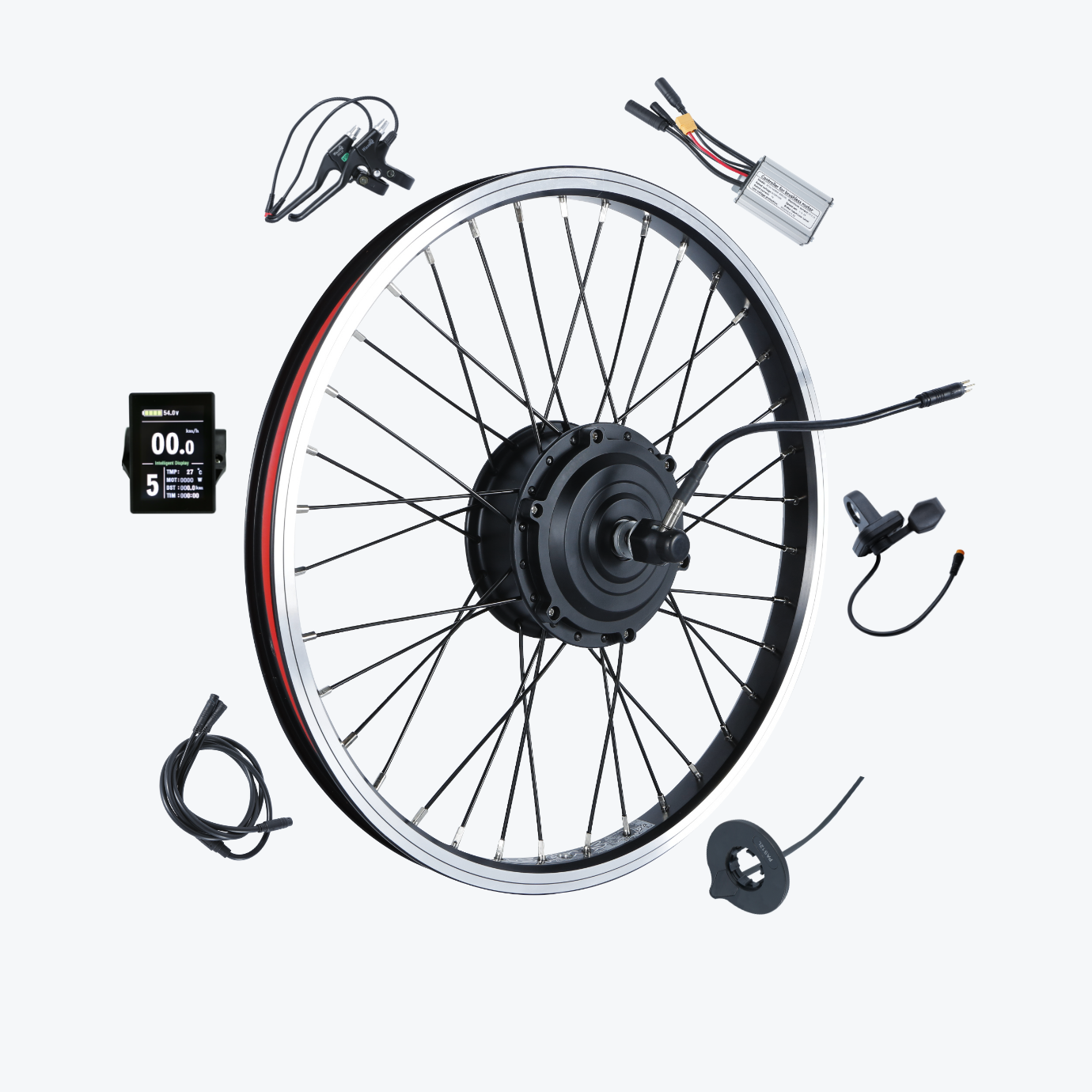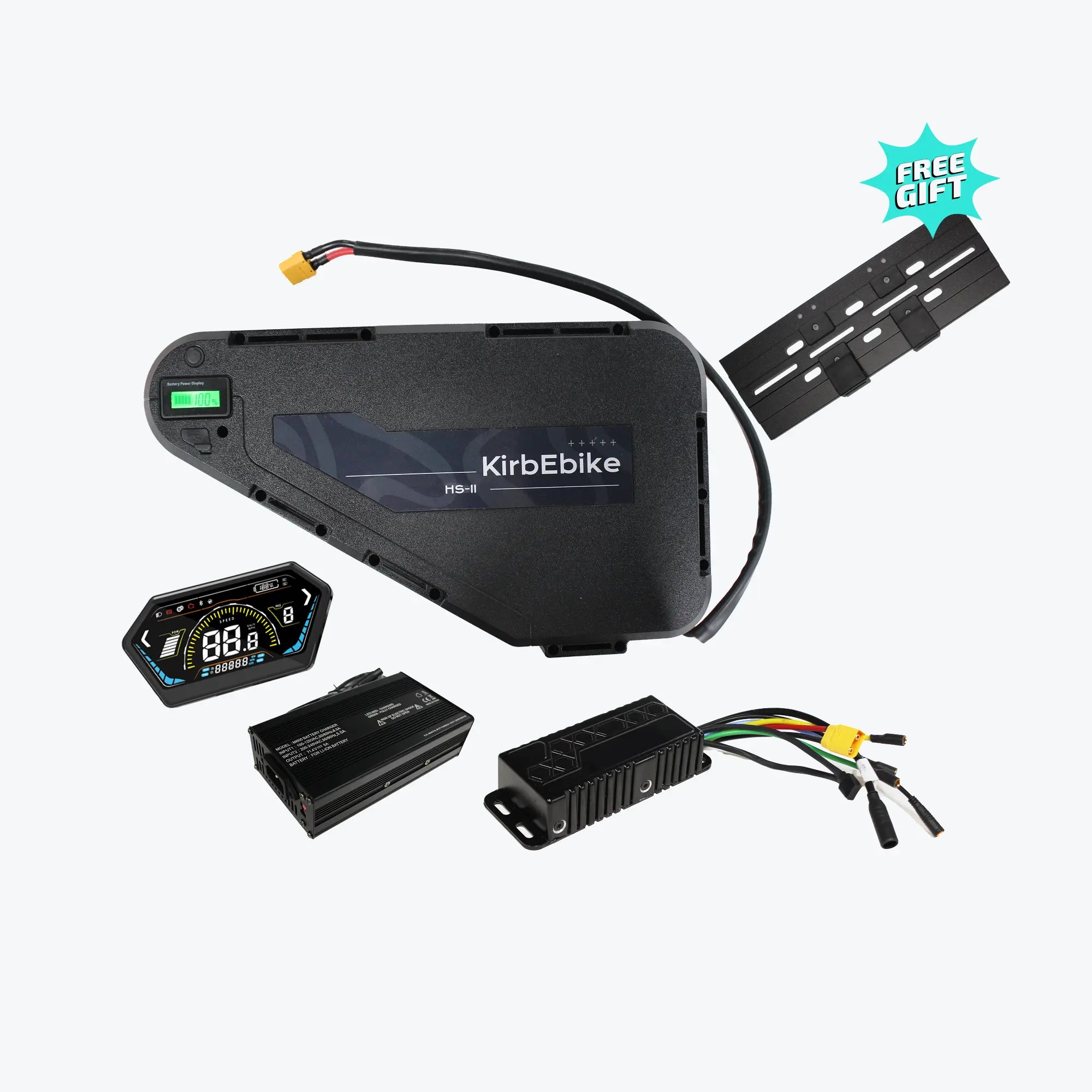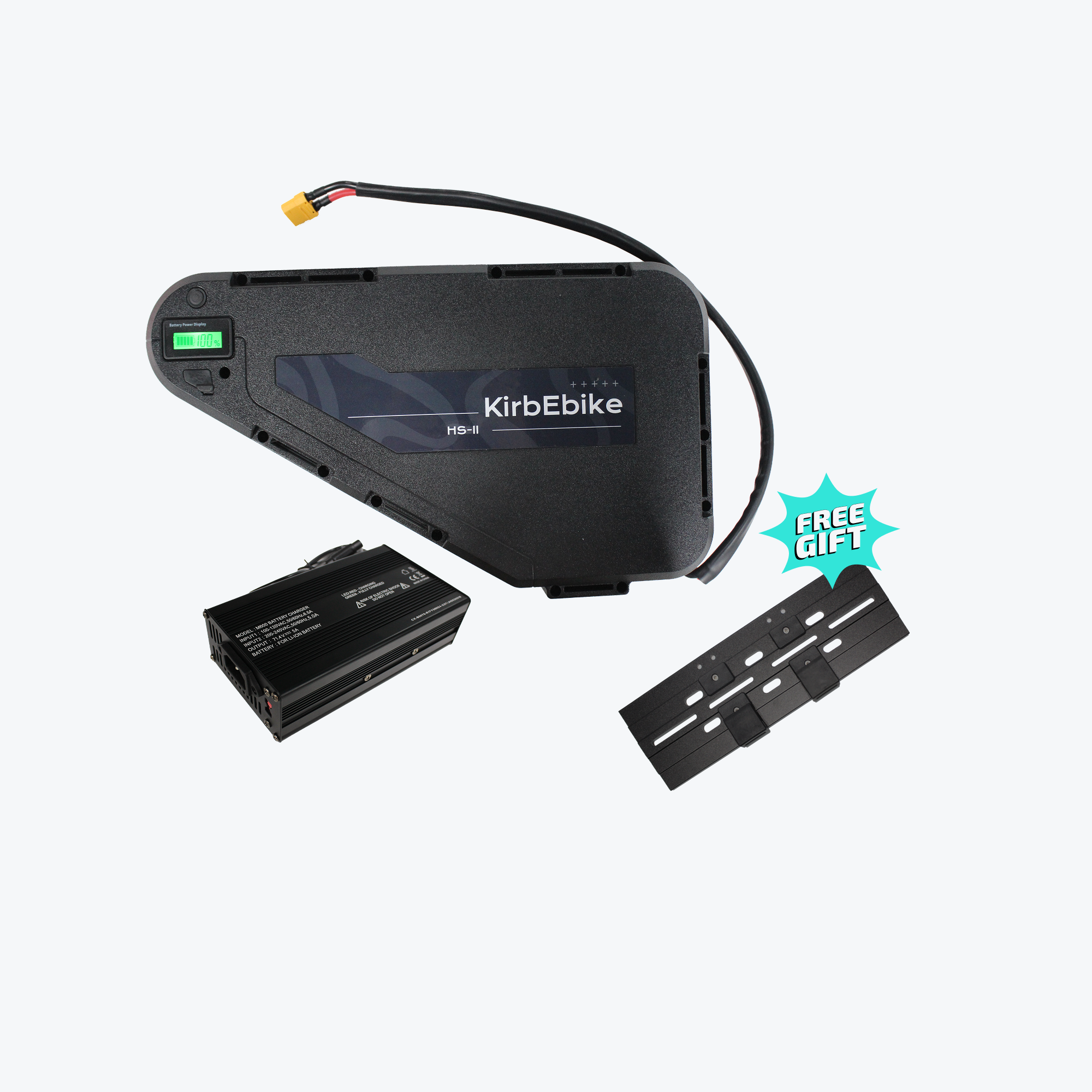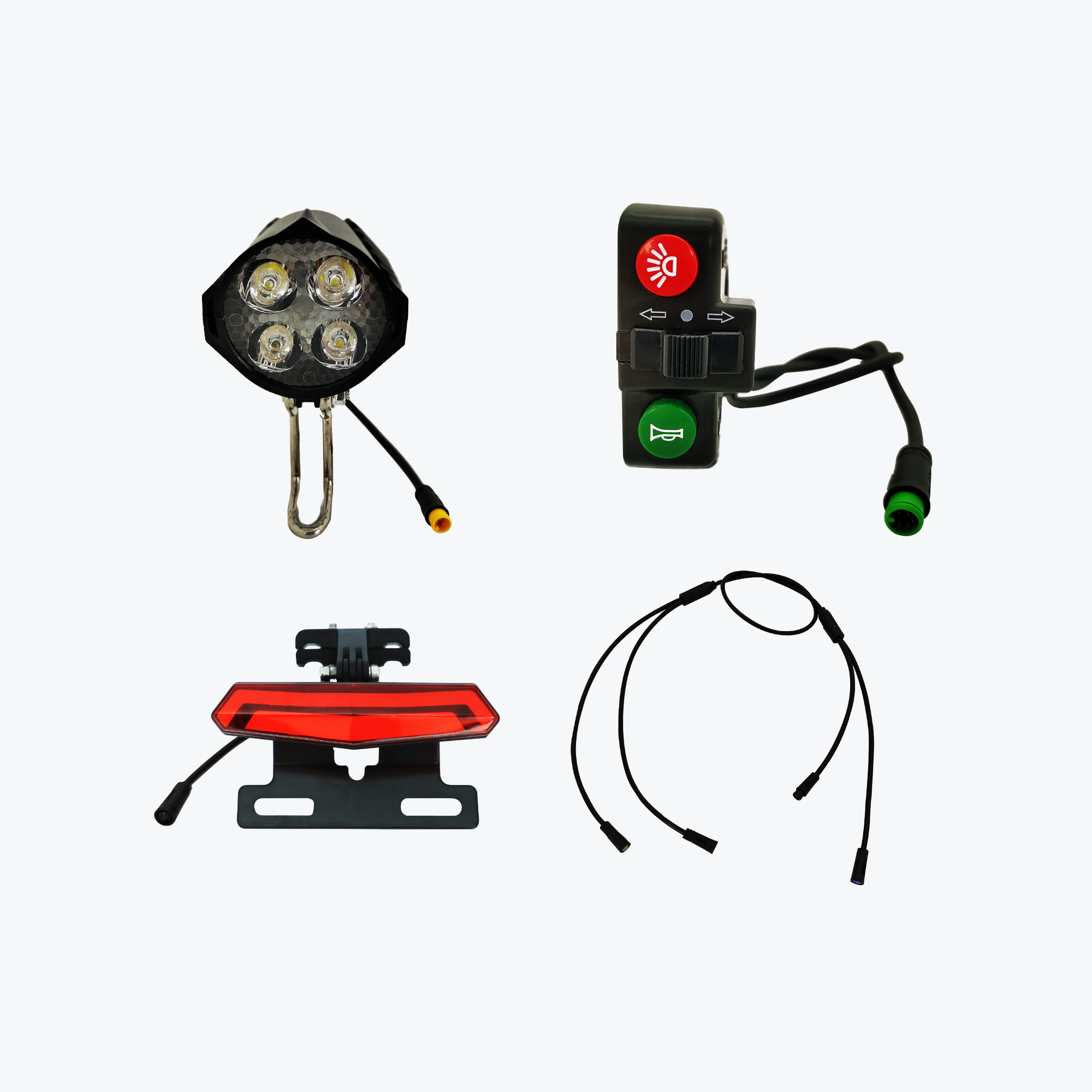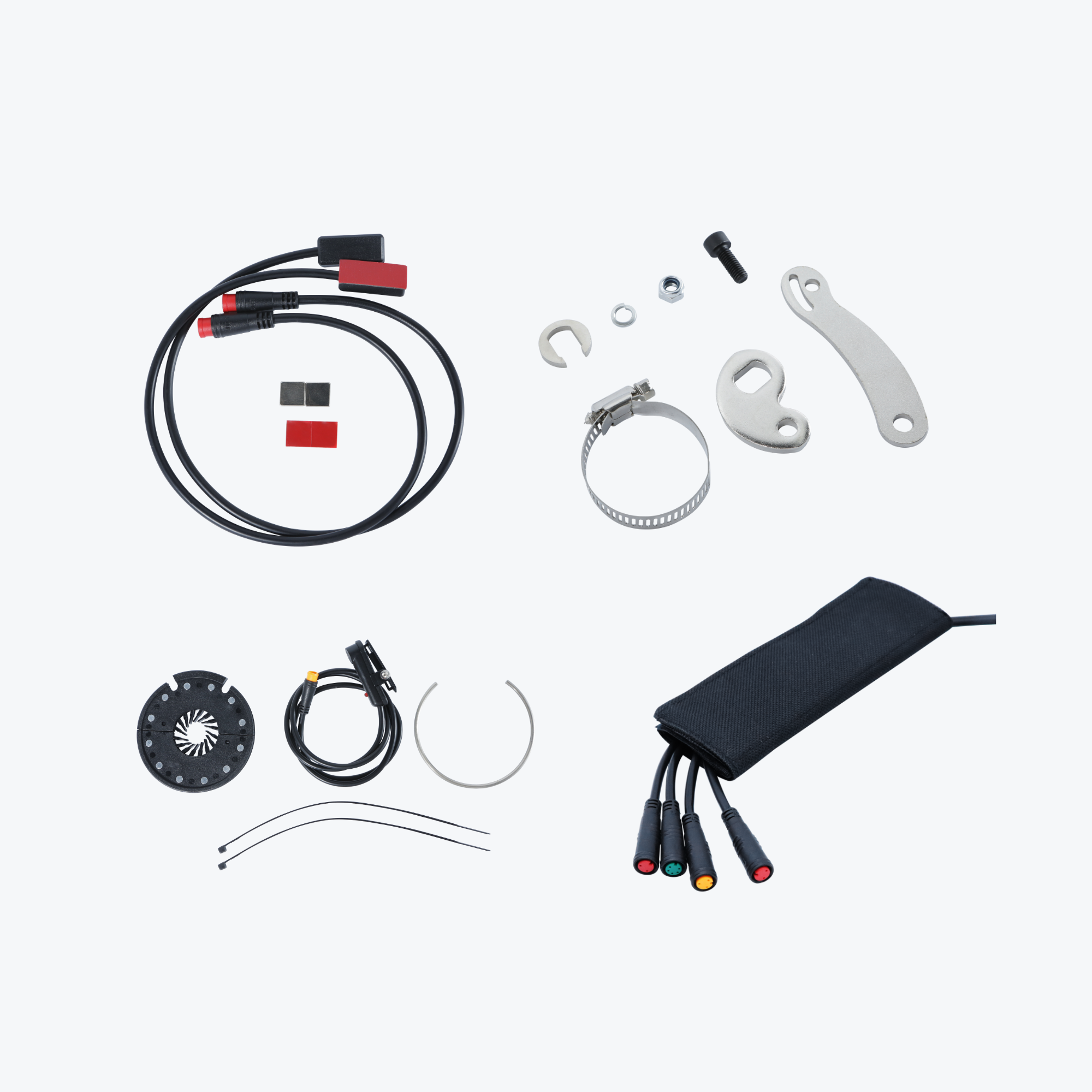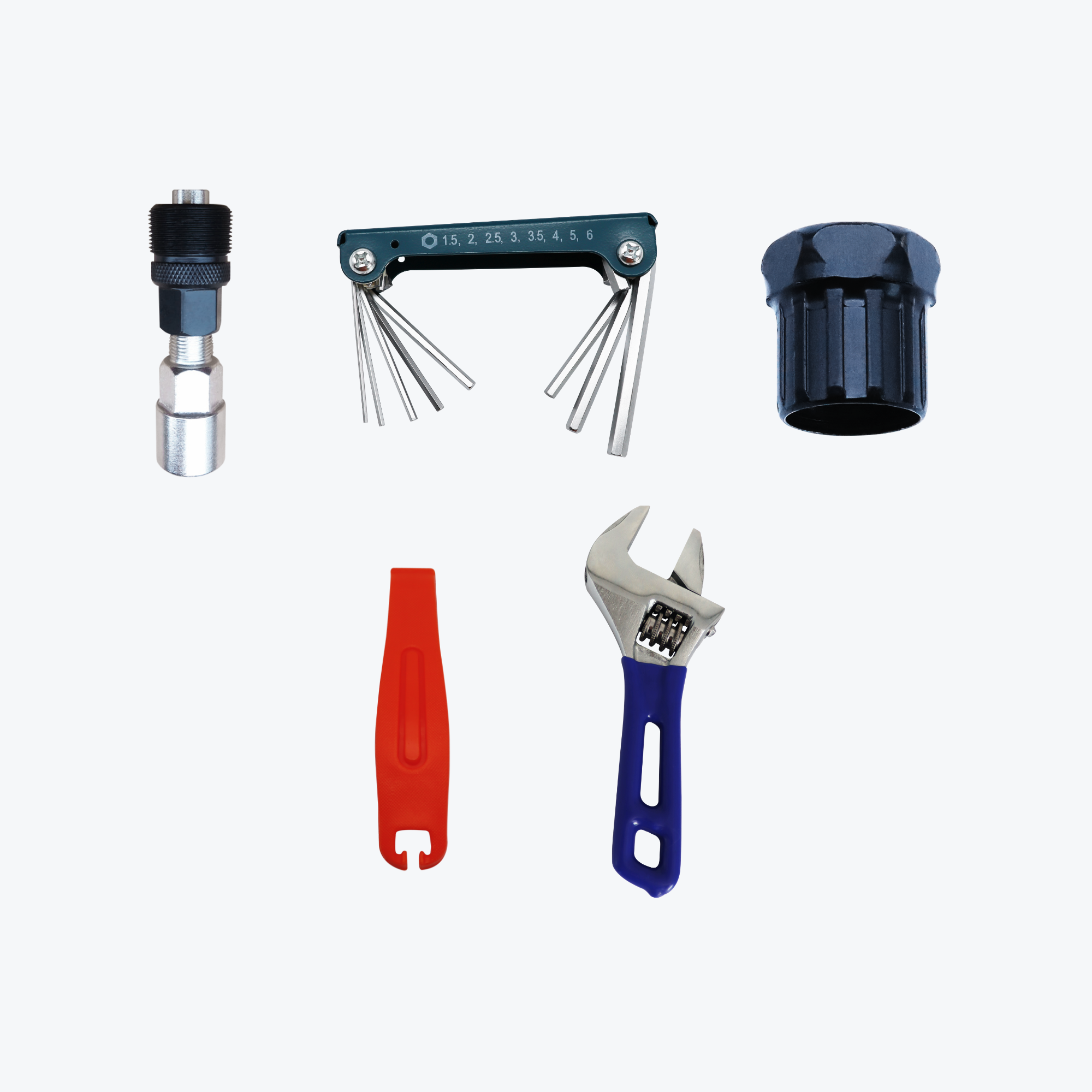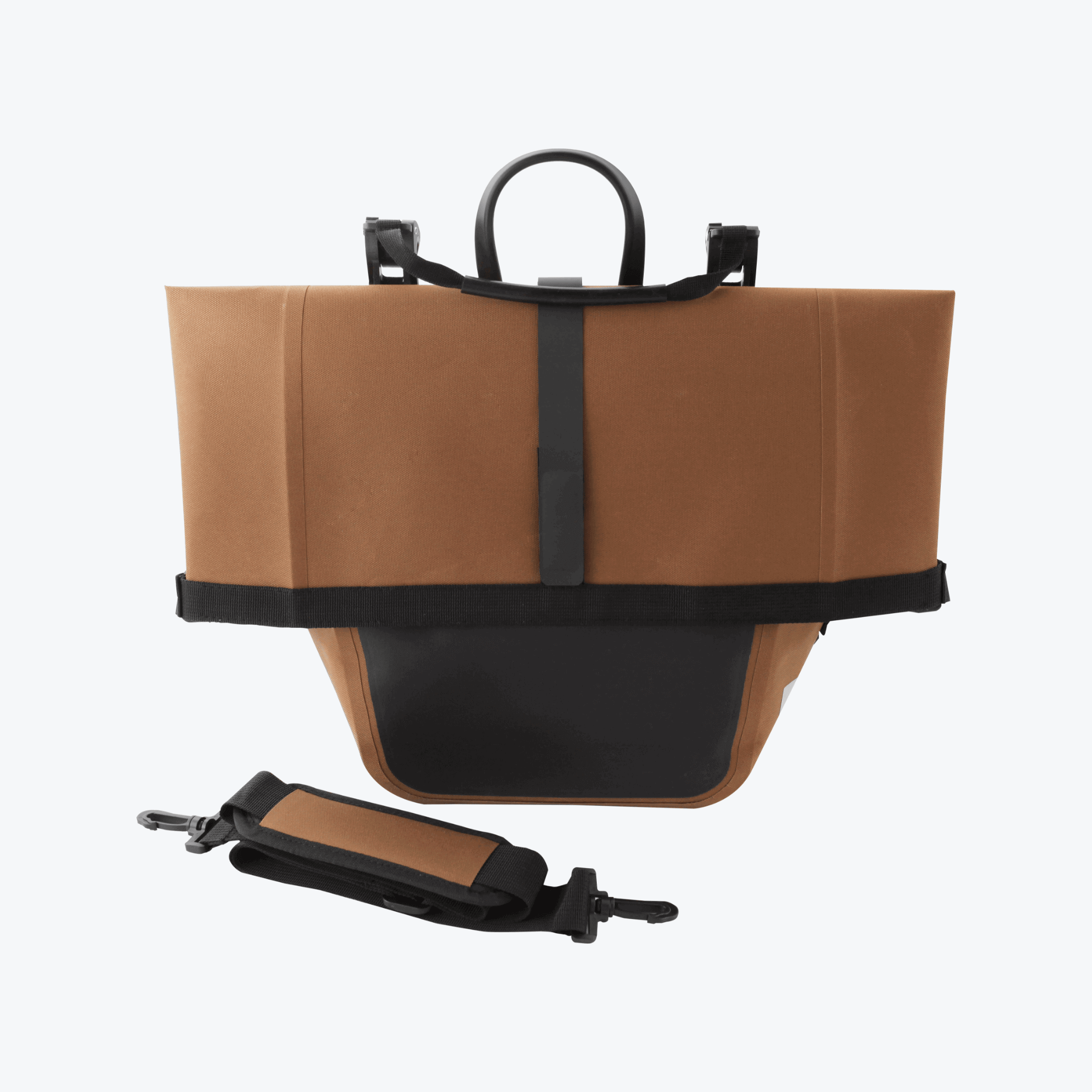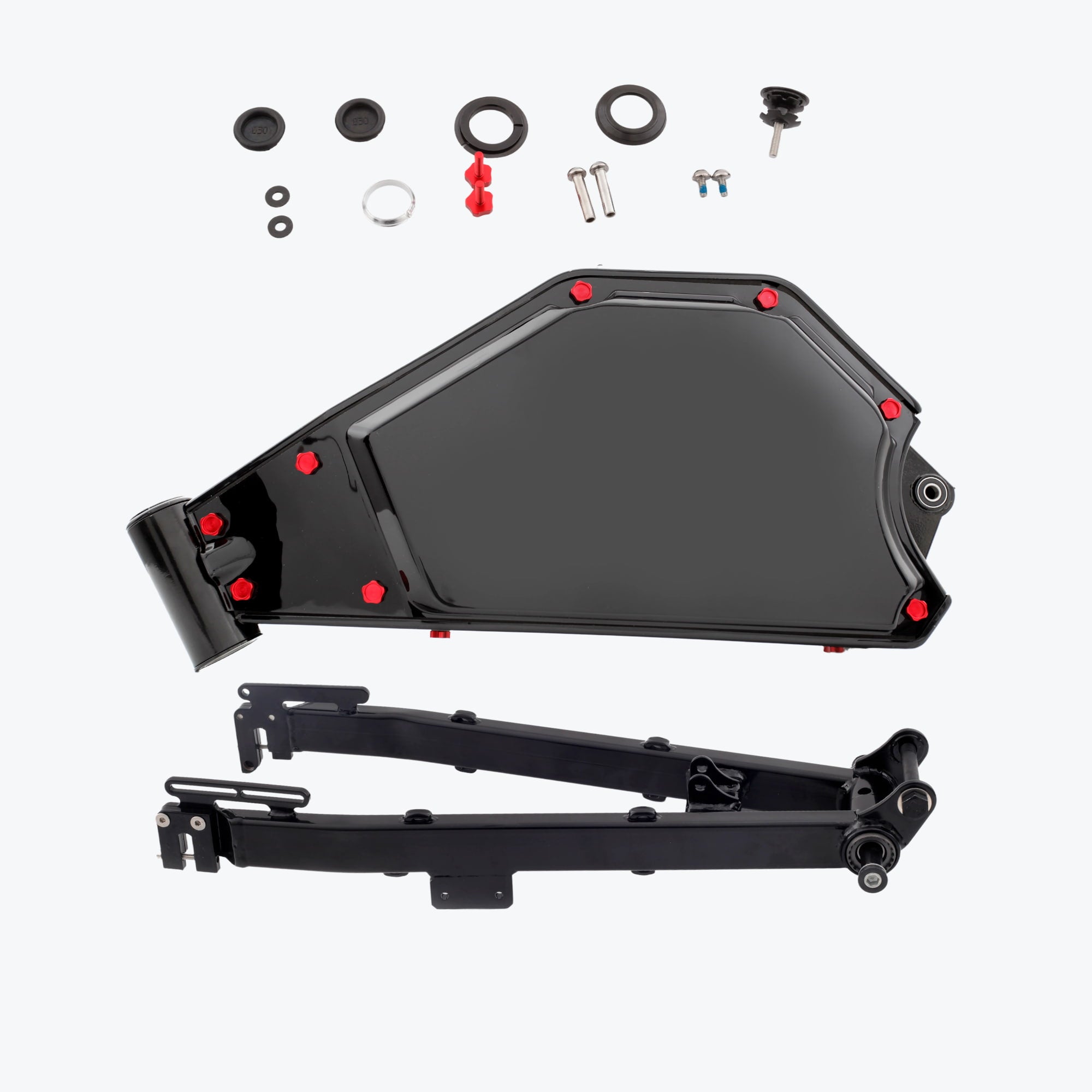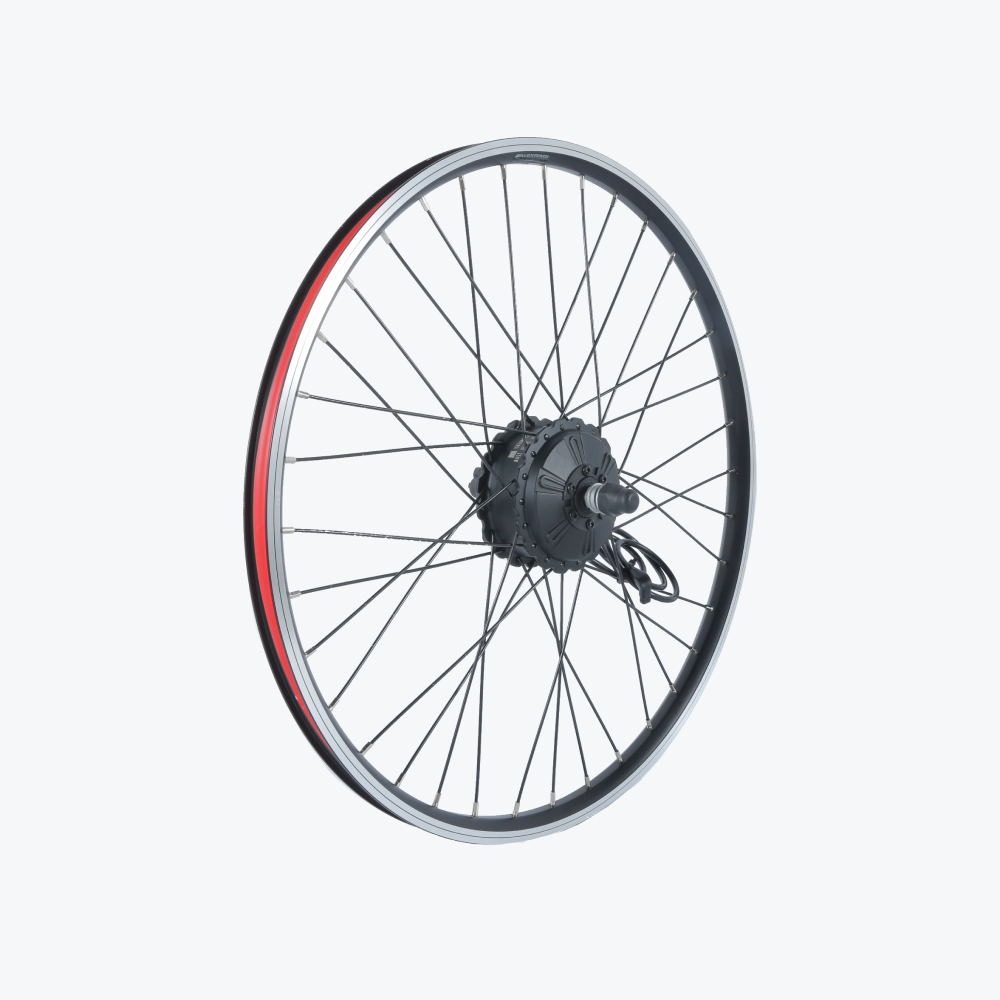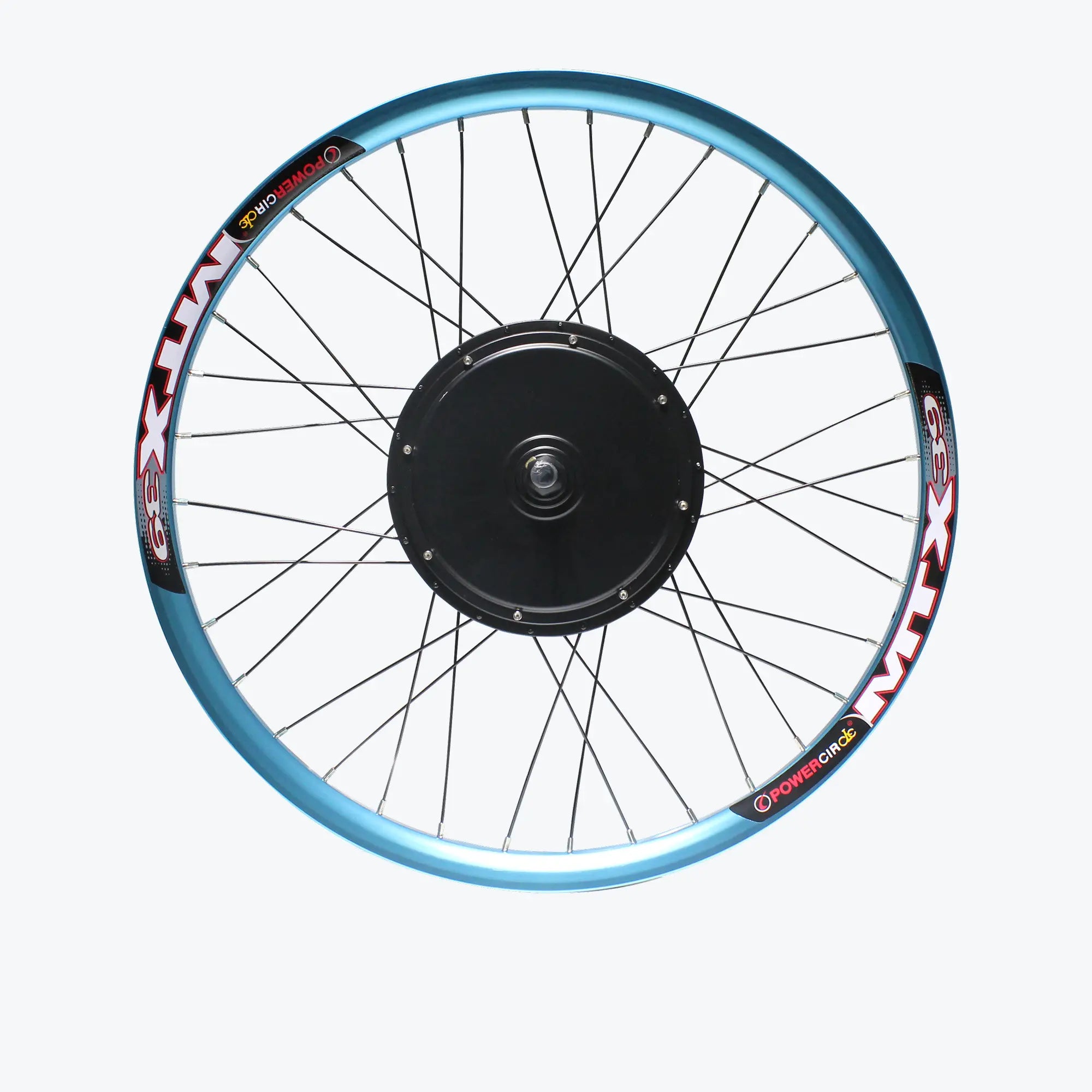With each passing day, electric bikes are becoming more popular. Electric bikes are like generic bikes in design, components, and geometrics. However, they are powered by electric motors instead of pedals. Rechargeable ebike batteries power these electric motors.
What are eBike batteries, and what do they do for your bike?
Ebike batteries can be called the powerhouse of the ebike. They supply the electrical energy required to power the bike's motor, brakes, and other electrical components. Ebike batteries are responsible for the range, speed, and overall functionality of the ebike. Hence, separating the batteries from the ebike stops the bike from being an electric bike.
Types of batteries and how to choose the best one for you
Ebikes are compatible with a wide range of battery types. However, before making a choice, you must consider several factors. These factors include the charging time, battery power, and the range it gives your bike. Here are different types of ebike batteries you could consider for your ebike:
Lithium Ion (Li-ion)
Li-ion batteries are one of the best batteries in the ebike industry. A combination of lithium polymer, Iron phosphate, and manganese are used in creating these ebike batteries. Combining these elements gives the resultant battery a longer lifespan than several of its counterparts.
Compared to other ebike batteries, Li-ion batteries have an impressive combination of weight and capacity. However, due to the numerous advantages of Li-ion batteries, they are pretty pricey.
Nickel Cadmium (NiCd)
Like the Li-ion battery, Nickel Cadmium batteries are pricey as well. However, they get the job done. Several people opt for lead acid batteries because they are cheap. The disadvantage of such a choice is that they often need to compromise on the battery range. Using a Nickel Cadmium battery will afford you a long running time with your ebike.
Unfortunately, the Cadmium component of NiCd batteries is difficult to recycle because it is hazardous. NiCd batteries are fast becoming obsolete because they have a high discharge rate and poor electricity density. If you are big on the lifespan of ebike batteries, NiCd batteries may not be a suitable choice.
Lithium Cobalt (LCo) Ebike Batteries
Due to Lithium's lightweight and powerful nature, it is often used to manufacture several ebike batteries. LCo batteries are a variant of Lithium ebike batteries. They have a higher density than several other lithium batteries. Consequently, they charge quickly and have a reliable battery life cycle. Hence, you would not need to spend so much on constantly replacing batteries.
Lead Acid Batteries
Lead acid is one of the most popular ebike batteries. Compared to other ebike batteries, it is the cheapest. This makes it the preferred choice for people who are on a budget.
However, lead ebike batteries have a short lifespan. Coupled with this disadvantage, they are bulky and have “weather-based performance.” During low temperatures, lead acid ebike batteries to drain faster, even when not in use. Due to the numerous disadvantages associated with this type of ebike battery, they are often ditched by manufacturers of ebike batteries.
Nickel Metal Hydride
Nickel metal hydride ebike batteries are a perfect fit if you are an average rider. It balances the short lifespan of lead acid batteries and the lengthy lifespan of lithium batteries. You would, however, need to ride with a spare on days you want to embark on a long trip. Please do this to avoid being stranded due to low battery.
Lithium Manganese
Lithium Manganese is another impressive bike battery made with Lithium. Although it is relatively new in the market, it has a long lifespan and a commendable range. Due to the long lifespan of Lithium Manganese batteries, you would not need to worry about your battery life during long trips.
Lithium Ion Polymer
Lithium Ion Polymer does not have as much range as the other Lithium ebike batteries. Nevertheless, it is easier to handle and move from place to place. The reason is that Li-ion polymer batteries do not carry liquid inside them. Hence, you would not need to use protective cases to handle them.
How to care for your battery, so it lasts as long as possible
Caring for your ebike battery is key to elongating the lifespan of your battery. Please do this to avoid your battery not using as long as it should.
Switch Off The Bike When Not In Use
Turning off your ebike when you are not using it is an effective way to increase the lifespan of your ebike battery. Such a practice will ensure that the battery does not drain quickly. Hence, eliminating the need for endless charging.
Do Not Stretch Your Battery Beyond Limits
Always leave out rest seasons for your ebike batteries. Consistent use of the ebike batteries without break periods will overstretch your battery limits. Such usage patterns will lead to a repeated pattern of charges and discharges. Hence, stressing the batteries and causing them to break down and get damaged quickly.
Always Make Use Of The Right Ride Modes
Using the turbo boost mode for all your riding spree will destroy your battery faster than expected. For the sake of your battery lifespan, limit the use of the turbo mode to hilly terrains. Make use of the low and mid settings for easier and smoother terrains.
Avoid Overloading The Bike
As an ebike rider, you may be unable to control the ebike weight. However, you can limit the load stacked on the bike. Overloading the ebike, especially on hilly terrains, causes the battery to drain faster. This is because the motor has to do more work, causing it to demand more power from the battery. Repeated drains cause you to charge more frequently, affecting the bike's overall lifecycle.
Tips on using your battery to get the most out of it
To get the most out of your ebike battery, pay attention to the following:
Charge Your Battery Before Its First Use
Charge your new batteries before the first usage. This process often takes a longer time than regular charge. However, doing this will preserve the lifespan of your ebike battery.
Avoid Total Drainage Before Recharging
At all costs, guard against your battery running down before you recharge. Allowing your battery to run down before charging will affect the charge-holding capacity of your battery. This will compromise your battery life and necessitate you to change them in no time.
Ensure The Battery Is Kept From Harsh Weather
Extremely hot and cold weather conditions are harmful to your ebike battery. Always ensure the battery is kept away from snow and sun. Cool weather is the best temperature for your battery to function maximally.
Always Use The Original Charger
Different chargers have their unique input and output. So you must shun using different chargers. Aside from the danger of shortening your ebike battery's lifespan, it could lead to an explosion.
FAQs about eBike batteries
How do I store my battery during winter?
Several ebike batteries tend to self-discharge during the winter season. So, storage in this season requires some dynamics. Before storing away your battery during winter, ensure it has a charge of about 50%. This will leave enough charge for the battery to self-discharge without affecting the battery cells. To avoid unwanted activation when it is not in use, ensure the battery is disconnected from the ebike before storage. Store the battery in a cool place and charge it up when you are set to use it again.
What does “memory effect” mean?
The memory effect occurs when a battery is recharged before it completely discharges. In cases like this, the battery remembers its last capacity before its recent charge. As a result, the battery usage time will decrease. This phenomenon is not so rampant with Lithium batteries as they have little or no memory effect.
My battery heats up while charging. Is this a bad sign?
It is common for batteries to heat up while being charged. It is a regular phenomenon you don't need to worry much about.
What is the meaning of self-discharge?
Self-discharge is when batteries gradually lose charge even though they are not in use.
Is It Proper To Charge My Ebike Battery Overnight?
Most batteries use smart chargers to detect when they are fully charged and disconnect themselves. However, as a precautionary measure, ensure you disconnect the charger when the battery is charged.
What is the meaning of Battery Life Cycle?
This is the number of times you can recharge your batteries before they become damaged.
What Is The Lifespan Of An Ebike Battery?
Ebike batteries don't have a static lifespan. The lifespan of a battery is dependent on a lot of factors. These factors include environmental conditions, depth of discharge, charging voltage, usage, and charging rate.
Conclusion
Caring for your ebike batteries is as important as choosing the correct ebike battery. This could be challenging if you are new to the world of ebikes. With the tips above, you will find it easier to care for your battery to elongate the lifespan of you.

